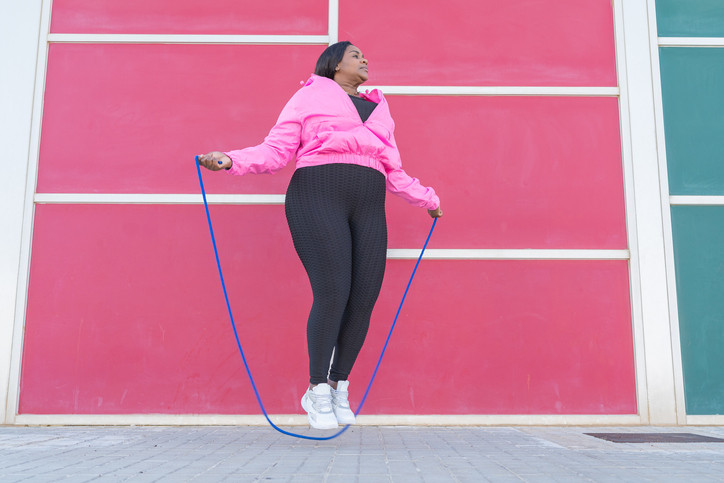Plyometrics are dynamic exercises that help build strength, power, balance, and agility, although starting slow and simple is best
What are plyometrics?

Plyometric training involves short, intense bursts of activity that target fast-twitch muscle fibers in the lower body. These fibers help generate explosive power that increases speed and jumping height.
"Plyometrics are used by competitive athletes who rely on quick, powerful movements, like those in basketball, volleyball, baseball, tennis, and track and field," says Thomas Newman, lead performance specialist with Harvard-affiliated Mass General Brigham Center for Sports Performance and Research. Plyometrics also can help improve coordination, agility, and flexibility, and offer an excellent heart-pumping workout.
Who can safely try plyometrics?
There are many kinds of plyometric exercises. Most people are familiar with gym plyometrics where people jump onto the top of boxes or over hurdles.
But these are advanced moves and should only be attempted with the assistance of a trainer once you have developed some skills and muscle strength.
Keep in mind that even the beginner plyometrics described in this post can be challenging. If you have had any joint issues, especially in your knees, back, or hips, or any trouble with balance, check with your doctor before doing any plyometric training.
How to maximize effort while minimizing risk of injury
- Choose a surface with some give. A thick, firm mat (not a thin yoga mat); well-padded, carpeted wood floor; or grass or dirt outside are good choices that absorb some of the impact as you land. Do not jump on tile, concrete, or asphalt surfaces.
- Aim for just a few inches off the floor to start. The higher you jump, the greater your impact on landing.
- Bend your legs when you land. Don't lock your knees.
- Land softly, and avoid landing only on your heels or the balls of your feet.
Three simple plyometric exercises
Here are three beginner-level exercises to jump-start your plyometric training. (Humming the bionic man sound is optional.)
Side jumps
Stand tall with your feet together. Shift your weight onto your right foot and leap as far as possible to your left, landing with your left foot followed by your right one. Repeat, hopping to your right. That's one rep.
- You can hold your arms in front of you or let them swing naturally.
- Try not to hunch or round your shoulders forward as you jump.
- To make this exercise easier, hop a shorter distance to the side and stay closer to the floor.
Do five to 15 reps to complete one set. Do one to three sets, resting between each set.
Jump rope
Jumping rope is an effective plyometric exercise because it emphasizes short, quick ground contact time. It also measures coordination and repeated jump height as you clear the rope.
- Begin with two minutes of jumping rope, then increase the time or add extra sets.
- Break it up into 10- to 30-second segments if two minutes is too difficult.
- If your feet get tangled, pause until you regain your balance and then continue.
An easier option is to go through the motions of jumping rope but without the rope.
Forward hops
Stand tall with your feet together. Bend your knees and jump forward one to two feet. Turn your body around and jump back to the starting position to complete one rep.
- Let your arms swing naturally during the hop.
- To make this exercise easier, hop a shorter distance and stay closer to the floor.
- If you want more of a challenge, hop farther and higher. As this becomes easier to do, try hopping over small hurdles. Begin with something like a stick and then increase the height, such as with books of various thicknesses.
Do five to 10 hops to complete one set. Do one to three sets, resting between each set.
